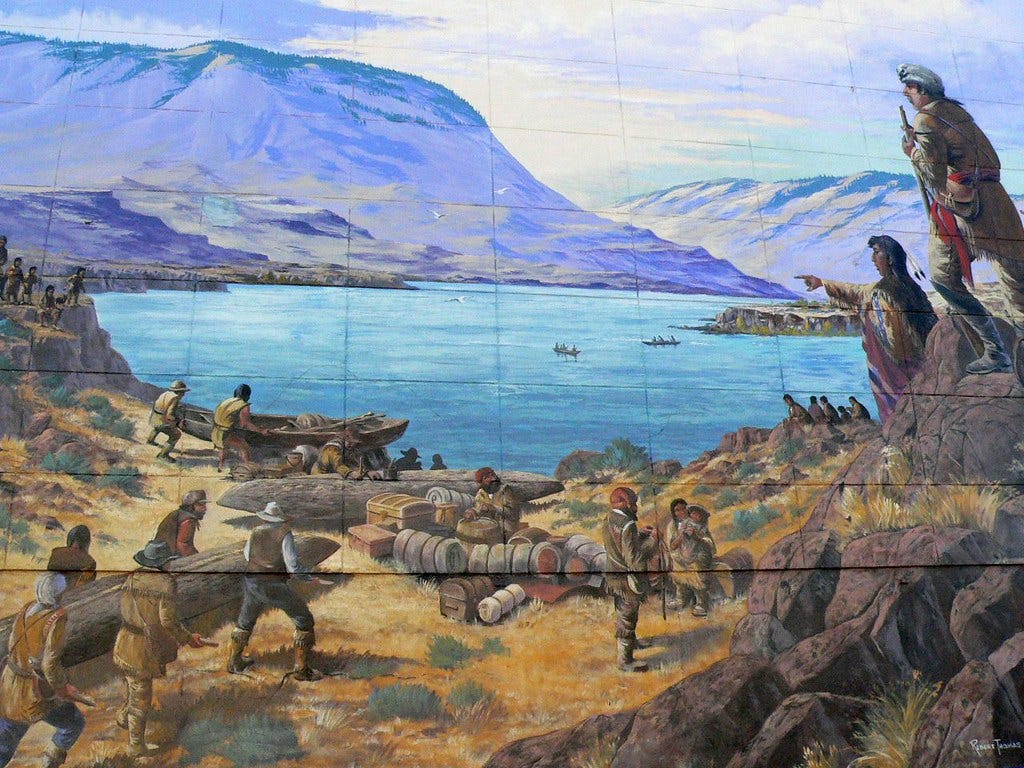Looking Back to Move Forward on the Oregon Way
It's sad we've lost our way because we need each other, East and West, urban and rural, Democrat and Republican. We are independent and interdependent.
The Oregon Way is a concept that has been around for a long time, but it seems more relevant now than ever before. I am grateful for this forum. The basic idea is that there is a political culture and way of doing things in Oregon unique from the rest of the country.
Please indulge me in a small digression. I like to hike and climb mountains. Getting lost can be deadly. A trick I learned and have used a couple times is that every so often one should turn around. If you look at what’s behind you and really take it in, it should look familiar on your journey back. When looking back here are things that come to mind.
The Oregon Way and the citizen's role in government are rooted in the state's early days. Increased direct citizen participation in government through the initiative, referendum, and recall of the early 1900's are known as the Oregon System, is just one example. Yet even then, there was a significant divide between Eastern and Western Oregon, and this division still exists today.
A charming gem, Oregon Literature, by J.B Horner, 1899, describes the influences on the Eastern and Western Oregon authors and literature. He concludes, "...then there will always be as a marked difference between the literature of Eastern Oregon and the literature of Western Oregon as if they were two different states on two different coasts." (p.22). That was a rather quaint notion. But today's reality is far from quaint.
My assessment is we have lost our way. We are a bit lost on this Oregon Trail. In part, I suspect the disorientation comes from non-Oregon influences. OSU’s Bill Lunch wrote a great little book that eerily foretells why we may be where we are. The Nationalization of American Politics (1987, 2021) touches on how changes at the federal level and media changed the role of the State Government. I think of it as losing local identity and replacing it with a homogenized national one. Home Depot versus a local hardware store or the local drug store with Walgreens. Not that those are bad, but they aren't local.
I am a fifth-generation Oregonian whose family settled in The Dalles, on Native lands, in the 1860's. They came up the Columbia by boat, not the Oregon Trail. I smile when I see those I love Oregon stickers with the state outline and green heart in the center. I think we have had some of the most significant state policy wins of any state. We have had political leaders whose commitment and values transcend party.
To witness calls for changing the borders, no matter how realistic they are, is extremely disheartening. It is sad because we need each other, East and West, urban and rural, Democrat and Republican. We are independent and interdependent. Calls for greater diversity mean everyone's voice is heard, which has allowed us to produce good policy and be a role model for other states. When we work together, we can do great things.
I propose a challenge. Can we update the idea of Oregon's pioneering spirit? Can we embrace more voices because our success as a community, as a state, is based on our interdependence and collaboration? I think so. We can be a role model for other states in having a political culture that succeeds by inclusion.
This is what the Oregon Way is all about. We have our differences; we respect one another and know that we are all Oregonians at the end of the day. We want what is best for our state. We may not always agree on how to get there, but we are willing to come together and find solutions that work for everyone. This is what makes Oregon so special and unique, and it is something for which we all can be proud.
I’m a 5th generation Oregonian, my great grandfather served in the Oregon legislature. My PhD is in Public Administration from Portland State.
Photo credit: "Oregon Trail Mural Lewis and Clark at Rock Fort by Robert Thomas in The Dalles Oregon" by mharrsch is licensed under


